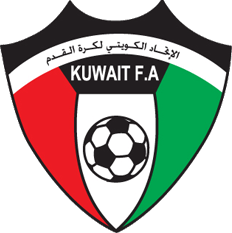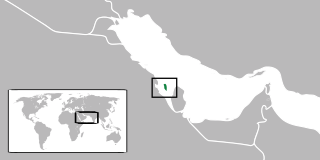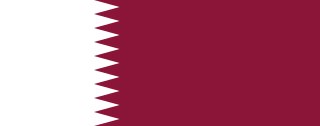Gulf Cooperation Council homosexuality test was a proposed [1] homosexuality test that would have been used in Gulf states to prevent any homosexual travelers from entering the countries. The director of public health Yousuf Mindkar from the Kuwaiti Ministry of Health initially proposed that routine medical examinations would have also screened for homosexuality. Obtaining a visa already requires passing a health examination for migrant workers from certain countries. Those who would have failed the tests would have had their visas revoked. [2] [3] [4] [5] [6] [7]
It has been suggested that concern for hosting 2022 FIFA World Cup in Qatar, and fears for controversy in a case that football fans would have been screened, made Mindkar to backtrack the plans and insist that it was a mere proposal. [1] The proposal was set to be discussed in Oman on 11 November 2013 by a central committee tasked with reviewing the situation concerning expatriates. [2] [6] [7] Previously in 2012 over 2 million expatriates across Gulf Cooperation Council countries were gender tested. [8]
Homosexuality is illegal in most Gulf Cooperation Council member states including Saudi Arabia, Kuwait, the United Arab Emirates, Qatar and Oman, [2] with the notable exception of Bahrain.
There is no known working medical test for homosexuality in existence. Some gay activists were worried that the Kuwaiti test would have used anal probes. [2] Lebanon uses such methods at police stations to determine what sexual practices suspected criminals have engaged in. One such instance was in 2012 when a movie theater was raided for pornography and 36 Lebanese men were subjected to anal examinations. [2] Peter Tatchell and the UK-based foundation carrying his name demanded boycotting or cancelling the 2022 FIFA World Cup that is to be held in Qatar. [9] [10] Amnesty International strongly opposed any plans to introduce tests for discriminatory purposes against sexual minorities. [7] [11] Nasser Al Khater, the chief executive of the Cup, said, “Everyone is welcome” to visit the country to watch the matches and no one will be discriminated against. [12]
It was also pointed out by Richard Lane from gay rights charity group Stonewall that restricting freedom of movement due to sexual orientation would be problematic to Gulf States that have marketed themselves as open to international business. [2]

The Cooperation Council for the Arab States of the Gulf, also known as the Gulf Cooperation Council, is a regional, intergovernmental, political, and economic union comprising Bahrain, Kuwait, Oman, Qatar, Saudi Arabia, and the United Arab Emirates. The council's main headquarters is located in Riyadh, the capital of Saudi Arabia. The Charter of the GCC was signed on 25 May 1981, formally establishing the institution.

The Kuwait national football team is the national team of Kuwait and is controlled by the Kuwait Football Association. Kuwait made one World Cup finals appearance, in 1982, managing one point in the group stages. In the Asian Cup, Kuwait reached the final in 1976 and won the tournament in 1980.

The United Arab Emirates national football team represents United Arab Emirates in international football and serves under the auspices of the country's Football Association.

The Qatar national football team nicknamed The Maroons, represents Qatar in international football, and is controlled by the Qatar Football Association and AFC. They play their home games at Khalifa International Stadium and Jassim Bin Hamad Stadium. The latter is considered the home stadium. Qatar is a member of both the FIFA and the Asian Football Confederation (AFC).

Lesbian, gay, bisexual, and transgender (LGBT) people in Saudi Arabia face repression and discrimination. The government of Saudi Arabia provides no legal protections for LGBT rights. Both male and female same-sex sexual activity is illegal within the country.

The Arab states of the Persian Gulf or the Arab Gulf states refers to a group of Arab states bordering the Persian Gulf. There are seven member states of the Arab League in the region: Bahrain, Kuwait, Iraq, Oman, Qatar, Saudi Arabia, and the United Arab Emirates. Yemen is bound to the six countries of the Gulf Cooperation Council, based on history and culture.

Lesbian, gay, bisexual and transgender (LGBT) people living in Bahrain face legal challenges and discrimination not experienced by non-LGBT residents. Vague laws against indecency are used to target gender and sexual minorities and allow up to a sentence of up to 17 years in prison with fines and deportation. Discussion of homosexuality has also been allowed in Bahrain since the 1990s.
The Arabian Gulf Cup, often referred to simply as the Gulf Cup, is a biennial football competition governed by the Arab Gulf Cup Football Federation for its eight member nations. The history of the competition has also seen it held every three to four years due to political or organisational problems. The reigning champions are Iraq, having won their fourth title at the 25th edition, as hosts, held in 2023.

Lesbian, gay, bisexual and transgender (LGBT) people in the United Arab Emirates face discrimination and legal challenges. Homosexuality is illegal in the United Arab Emirates (UAE) and under the federal criminal provisions, consensual same-sex sexual activity is punishable by imprisonment; extra-marital sexual activity between persons of different sexes is also illegal. In both cases, prosecution will only be brought if a husband or male guardian of one of the participants makes a criminal complaint. The penalty is a minimum of six months imprisonment; no maximum penalty is prescribed, and the court has full discretion to impose any sentence in accordance with the country's constitution.

Qatar, officially the State of Qatar, is a country in West Asia. It occupies the Qatar Peninsula on the northeastern coast of the Arabian Peninsula in the Middle East; it shares its sole land border with Saudi Arabia to the south, with the rest of its territory surrounded by the Persian Gulf. The Gulf of Bahrain, an inlet of the Persian Gulf, separates Qatar from nearby Bahrain. The capital is Doha, home to over 80% of the country's inhabitants, and the land area is mostly made up of flat, low-lying desert.

Lesbian, gay, bisexual, and transgender (LGBT) people in Kuwait face significant challenges not experienced by non-LGBT residents. Same-sex sexual activity between men is specifically outlawed and LGBT individuals may also be targeted under the public morality laws. LGBT persons are regularly prosecuted by the government and additionally face discrimination and stigmatization by officials and amongst the broader population.

Lesbian, gay, bisexual, and transgender (LGBT) people in Oman face significant challenges not experienced by non-LGBT residents. Homosexuality in the Sultanate of Oman is illegal according to §§, 33 and 223 of the penal code and can be punished with a prison sentence of up to three years. This law is applicable to both men and women. In Oman, it is said that cases only get to court if "public scandal" is involved.

Lesbian, gay, bisexual, and transgender (LGBT) people in Qatar experience legal persecution. Sexual acts between males are illegal in Qatar, with punishment for both Muslims and non-Muslims of up to three years in prison. For Muslims duly convicted in the sharia courts, a judicial sentence of capital punishment for homosexuality is a possibility, though it has never been imposed. Abuse such as beatings and torture, and forced "conversion therapy" have also been used by police and other authorities. There is no explicit corresponding prohibition of consensual sex between women, although sharia disallows sexual activity outside of marriage.
The state of human rights in Qatar is a concern for several non-governmental organisations, such as the Human Rights Watch (HRW), which reported in 2012 that hundreds of thousands of mostly South Asian migrant workers in construction in Qatar risk serious exploitation and abuse, sometimes amounting to forced labour. Qatar is an authoritarian and de facto absolute monarchy under the House of Thani. Qatari law also does not permit the establishment of political bodies or trade unions. Awareness of human rights abuses in Qatar grew internationally after Qatar's controversial selection to stage the 2022 FIFA World Cup.

The kafala system is a system used to monitor migrant laborers, working primarily in the construction and domestic sectors in Gulf Cooperation Council member states and a few neighboring countries, namely Qatar, Bahrain, Kuwait, Lebanon, Oman, Saudi Arabia and the United Arab Emirates.

Lesbian, gay, bisexual, and transgender (LGBT) people generally have limited or highly restrictive rights in most parts of the Middle East, and are open to hostility in others. Sex between men is illegal in 9 of the 18 countries that make up the region. It is punishable by death in four of these 18 countries. The rights and freedoms of LGBT citizens are strongly influenced by the prevailing cultural traditions and religious mores of people living in the region – particularly Islam.

The 23rd Arabian Gulf Cup was the 23rd edition of the biennial football competition for the eight members of the Arab Gulf Cup Football Federation. It took place in Kuwait from 22 December 2017 until 5 January 2018. Oman won their second title, defeating the United Arab Emirates in the final on penalties following a goalless draw.
Migrant workers in the Gulf Cooperation Council region involves the prevalence of migrant workers in the Kingdom of Bahrain, the State of Kuwait, the Sultanate of Oman, the State of Qatar, the Kingdom of Saudi Arabia and the United Arab Emirates (UAE). Together, these six countries form the Gulf Cooperation Council (GCC), established in 1981. The GCC cooperates on issues related to economy and politics, and the subject of migrant workers constitutes a substantial part of the council's collaboration. All of the GCC countries are dependent on migrant labor to bolster and stimulate economic growth and development, as the GCC countries possess an abundance of capital while the domestic labor capacity is low. Although migrant workers in the Persian Gulf region amount to no more than 10% of all migrants worldwide, they constitute a significant part of the populations of their host countries.

The treatment of South Asian labourers in the Gulf Cooperation Council (GCC) region is an ongoing issue between members of the South Asian Association for Regional Cooperation (SAARC) nations and the wealthy oil-rich Gulf Cooperation Council. The current large number of migrants from South Asia to the Persian Gulf began in the 1960s, when the oil boom in the Gulf Arab countries resulted in migrant labourers. This further increased with the development of large mega-cities. With the growth of megacities of Dubai, Doha and Riyadh, the need for construction labourers grew. Migrants from Bhutan, Nepal,, Pakistan, India, Sri Lanka, Bangladesh, and Maldives were contracted to develop the mushrooming skyscrapers. Many of these migrants were brought into the GCC under the kafala system, a sponsor-based system used in the GCC, which is seen by many human rights groups as highly exploitative, since their passports are confiscated and they are forced to work in low-level conditions, within cramped living quarters, for a low salary, and sometimes even without their due pay; when exploitation is brought up or exposed by media or the labourers, their employers are rarely punished.
There are no LGBT rights in Qatar, with homosexuality as well as campaigning for LGBT rights criminalised. As such, when Qatar was selected to host the 2022 FIFA World Cup, the choice to do so in a restrictive nation saw much criticism, with several topics becoming the subject of controversy.